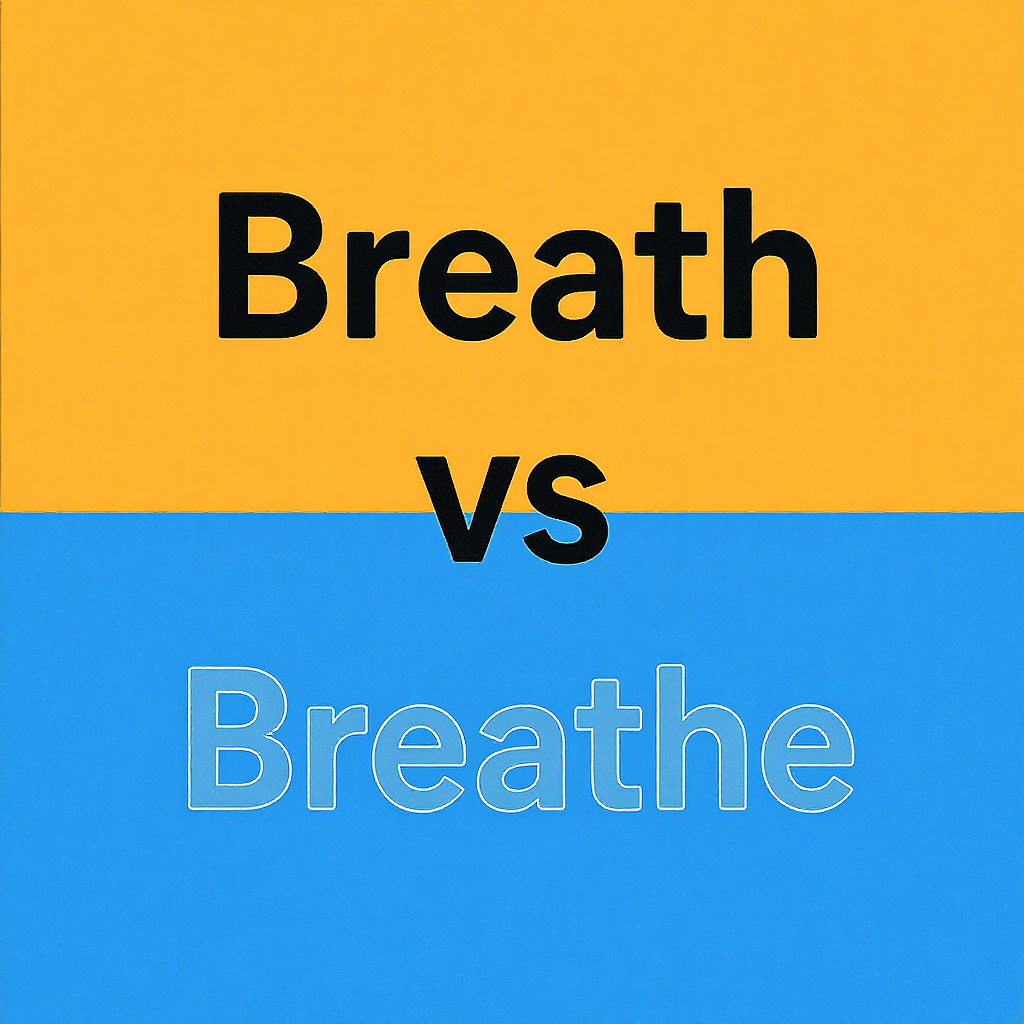"Breath" Vs "Breathe" - What's the Difference

English can be tricky when one tiny letter changes everything. That’s the case with “breath” and “breathe.” They look almost the same, but they don’t mean the same thing—and they aren’t pronounced the same way either.
Let’s break them down so you never mix them up again.
Breath – the Noun
Breath (without the “e” at the end) is a noun. It refers to the air you take in or let out of your lungs.
Think of it as the thing itself—the puff of air.
Examples:
- Take a deep breath before diving.
- She was out of breath after running.
- His last breath was peaceful.
👉 Pronunciation tip: It rhymes with “death” /brɛθ/. The “th” is unvoiced, meaning you don’t vibrate your vocal cords.
Breathe – the Verb
Breathe (with the “e” at the end) is a verb. It means the action of inhaling or exhaling air.
So, while breath is the air, breathe is the act of moving that air.
Examples:
- Relax and breathe slowly.
- Plants breathe in carbon dioxide.
- I could hardly breathe in the smoke.
👉 Pronunciation tip: It rhymes with “seethe” /briːð/. The “th” is voiced—your vocal cords vibrate.
Quick Trick to Remember
- Breath = Noun → the air itself.
- Breathe = Verb → the action of taking in or letting out air.
If you can put “a” or “the” before it, you probably need breath. If you can add “to” in front of it, you probably need breathe.
Example:
- Take a breath. ✅
- Don’t forget to breathe. ✅
Common Expressions
- Out of breath → tired from exercise.
- Hold your breath → wait anxiously.
- Catch your breath → recover after effort.
- Breathe new life into → bring energy or ideas to something.
- Breathe a sigh of relief → relax after stress.
Comparison Table
| Word | Part of Speech | Meaning | Example | Pronunciation |
|---|---|---|---|---|
| Breath | Noun | Air taken in or out of lungs | She took a deep breath. | /brɛθ/ (like “death”) |
| Breathe | Verb | Act of inhaling or exhaling | Just relax and breathe. | /briːð/ (like “seethe”) |
FAQs
Is “breath” ever a verb?
No, “breath” is only a noun. Use “breathe” for the action.
Why do they sound different?
The “th” in breath is unvoiced (/θ/), while in breathe it’s voiced (/ð/).
Can you say “take a breathe”?
No ❌. The correct phrase is “take a breath.”
Is “breathe” longer than “breath”?
Yes—both in spelling (one more letter) and in pronunciation (it’s a longer sound).
Do British and American English use them differently?
No—the distinction between “breath” and “breathe” is the same in both.
Final Thoughts
The difference between “breath” and “breathe” is simple once you know it: one is a noun (the air itself), the other is a verb (the action of taking in or pushing out air).
So next time you write, remember:
- You take a breath.
- You breathe deeply.
Easy, right?